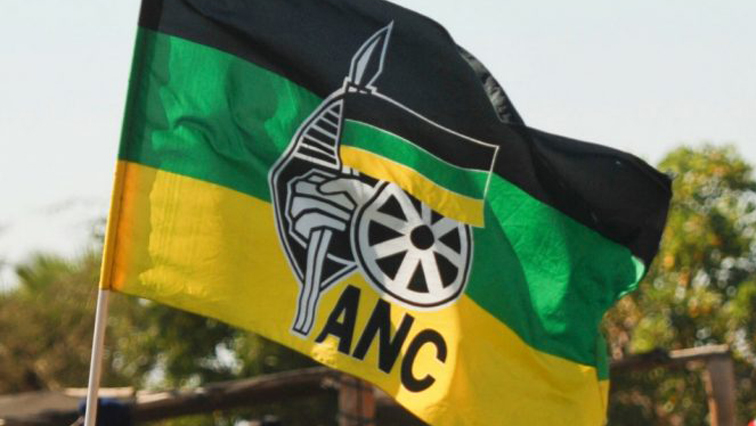The African National Congress (ANC) will on Saturday host its annual January 8 statement with an anniversary rally in Polokwane.
Party president Cyril Ramaphosa will deliver the January 8 Statement during the celebrations that will take place at the Peter Mokaba Stadium.
The January 8 Statement paves way for the party’s plans for the year and provides a broad framework with the country’s president ahead of his State of the Nation Address next month.
- Tambo delivers first January 8 Statement.
In 1972, former ANC president Oliver Tambo wrote the first ANC January 8 Statement while he was in Zambia, Lusaka.
The focus for this celebrations was on the building of a nation as black people were still oppressed under the apartheid government.
Tambo said the January 8 Statement was the birthday not merely of the ANC, but of a nation — the owners of the land.
During his delivery of the January 8 Statement, Tambo told his comrades that the time has come for white people to stop making laws for black people or talking about them in their white Parliament.
“We must reject the role of slave who is told whom to work for and what meagre wages to accept,” he said.
Tambo asked why has the status of black people increasingly become that of foreigners, as generation followed generation, in their own country.
“Why are we where we are – violently oppressed, brutally exploited and racially persecuted and insulted – which is worse than where we were this day 60 years ago? This is surely one of the rarest questions that a people could put to itself at the end of sixty years of continuous and courageous struggle and sacrifice,” said Tambo in 1972.
In conclusion of his speech, Tambo urged ANC members to continue fighting against racism, exploitation and oppression in South Africa.
- Mandela delivers ANC January 8 under democracy
Former president Nelson Mandela delivered the January 8 Statement in 1995 under the democratic government.
This was the first January 8 Statement since the country had its first democratic elections.
Elections that saw both black and white people voting for a democratically elected government.
During his January 8 Statement, Mandela focused on nation building, peace and reconciliation.
“The dreams and the vision of the great patriots who formed the ANC are about to be realised. The hopes of the millions who sacrificed for the realisation of that vision are, at last, about to be fulfilled,” he said.
Mandela used the January 8 Statement to urge party members to implement resolutions taken at the first party conference since democracy.
“In the coming weeks and months, the resolutions of our Conference will be carried back into our structures for further elaboration, for discussion and, above all, for active implementation.”
- Mbeki’s January 8 Statement
In 2007, former president Thabo Mbeki focused on poverty and equality that most black people were faced with.
Mbeki said the party had already made progress in undoing the devastating legacy of colonial and apartheid oppression, dispossession and deliberate underdevelopment.
“We will also be able to do this because of the steps we have taken to redirect state expenditure towards meeting the needs of the poor, and to free up resources previously used to service our inherited public debt for spending on service provision and infrastructure,” said Mbeki.
But in 2021, Statistics South Africa released the unemployment rate for the third quarter, which rose to a new record high of 34.9% from 34.4% in the second quarter.
This means that the number of unemployed people now stands at 7 643 000.
According to an expanded definition of unemployment that includes those discouraged from seeking work, 46.6% of the labour force was without work in the third quarter.
- Zuma’s January 8 Statement
Former ANC president Jacob Zuma delivered the January 8 Statement that coincided with the 60th anniversary of the Freedom Charter.
During his delivery of the statement, Zuma reiterated unity statements that were previously made by Mandela when he delivered his January 8 Statement in 1995.
Zuma also used his January 8 Statement to urge party members to us root out members and representatives who are corrupt, factional and who undermine the unity and cohesion of the ANC.
He said South Africa needs a strong, vibrant ANC Youth league that will ensure that the progressive future of the country is guaranteed.
The former leader used his address to reiterate other leaders’ statements that the governing party was working hard to deracialise the economy of the country and break the stranglehold of monopoly capital.
- Ramaphosa’s January 8 Statement
In 2021, Ramaphosa delivered his January 8 Statement virtually because of the COVID-19 pandemic.
During his address, Ramaphosa acknowledged the challenges that the ANC is currently facing.
He said the ANC has been weakened by corruption, resistance to renewal and controversies involving ANC leaders.
In 2021, ANC saw some of its top leaders, including the party secretary-general Ace Magashule appearing in court for fraud and corruption charges.
Ramaphosa said corruption and controversies involving ANC leaders have widened the social distance between the ANC and the people.
The 2021 January 8 Statement came at a time where the party was facing many challenges including divisions.
“There is a danger that internal conflicts can consume us, and detract [us] from the very real work we need to do to unite and transform our society,” said the ANC President.


